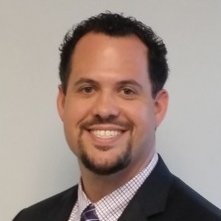Connecting Patient Data Solving Healthcare Interoperability and the ONC Blockchain Challenge
Propogated by experts, veterans of industry, and healthcare players spanning every facet of the healthcare ecosystem is the myth that healthcare interoperablity is a fantansy.
Is the United States healthcare system so complex that healthcare interoperability is a fantasy that will never be achieved? Submitted to the ONC Blockchain Challenge, a paper that I co-authored with Dr. William Dailey, a practicing physician and chief of medical information at Golden Valley Memorial Healthcare, proposes solutions to the ongoing concerns regarding healthcare interoperability in the United States. Our paper, which is the second one I submitted to the challenge, is titled "Micro-Identities Improve Healthcare Interoperability With Blockchain: Deterministic Methods for Connecting Patient Data to Uniform Patient Identifiers."
 Peter B. NicholInteroperability is an old concept dating back to the eighth century BC. Society has been struggling for centuries with the idea of combining individual parts or components to create a whole unit. However, interoperability with healthcare only came about in published works 23 years ago, in 1993. More recently, in 2013, HIMSS defined of healthcare interoperability as “the ability of different information technology systems and software applications to communicate, exchange data and use the information that has been exchanged.”
Peter B. NicholInteroperability is an old concept dating back to the eighth century BC. Society has been struggling for centuries with the idea of combining individual parts or components to create a whole unit. However, interoperability with healthcare only came about in published works 23 years ago, in 1993. More recently, in 2013, HIMSS defined of healthcare interoperability as “the ability of different information technology systems and software applications to communicate, exchange data and use the information that has been exchanged.”
This definition is alluring but inaccurate and incomplete. I’d like to offer this updated definition: “Healthcare interoperability is the ability for multiple healthcare ecosystems to work in harmony without unreasonable efforts by the ecosystems' producers and consumers.” Interoperability is a societal problem that involves organizations and technology, not only technology. The National Institute of Standards and Technology (NIST) is working in partnership with the Office of the National Coordinator for Health Information Technology (ONC) to solve the national problem of healthcare interoperability...
- Tags:
- Argonaut Project
- data exchange
- Electronic Medical Record (EMR)
- Fast Healthcare Interoperability Resources (FHIR)
- Gil Alterovitz
- Golden Valley Memorial Healthcare
- health information technology (HIT)
- HIMSS
- HL7 FHIR
- interoperability
- keyless signature infrastructure (KSI)
- man-in-the-middle (MiM)
- mHealth
- National Institute of Standards and Technology (NIST)
- Office of the National Coordinator for Health Information Technology (ONC)
- ONC Blockchain Challenge
- patient data solving
- Peter B. Nichol
- point of care (POC)
- public health
- RESTful interface(s)
- William Dailey
- Login to post comments